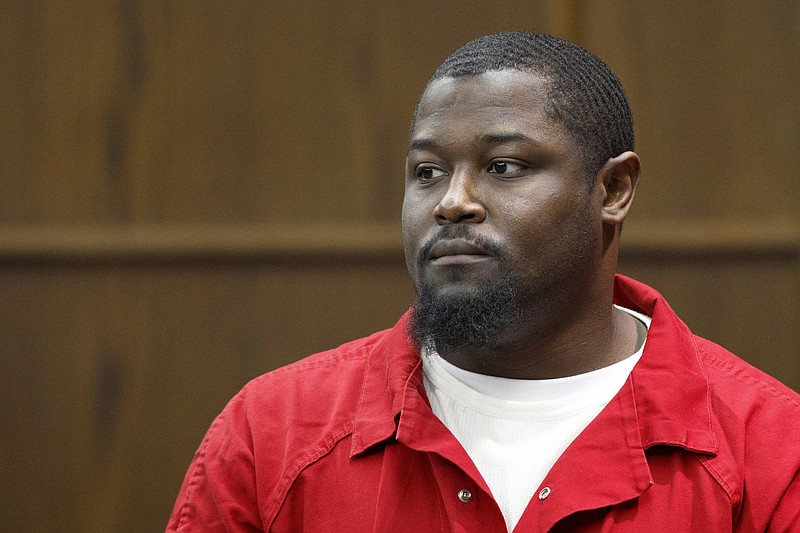A 33-year-old man's bid for a new trial in a 2010 robbery-turned-murder that he says he didn't commit will now rely on when a judge believes the incident actually happened.
Using cellphone data provided by the state, defense attorney Daniel Murphy argued Wednesday that Unjolee Moore wasn't at the British Woods Apartments on June 28, 2010, when Bernard Hughes was fatally shot and Timothy Westfield was wounded. In fact, Murphy argued, the records showed Moore's phone was about five and a half miles away from the scene around 11:30 p.m., when a victim of the crime told authorities that it began to occur.
But Chattanooga prosecutors, using the same data, framed the incident around a different time: 12:03 p.m., when police were called to the crime scene. And at that time, Executive Assistant District Attorney Cameron Williams argued, the data showed Moore's phone interacting with a cell tower about a mile away from the crime scene.
Hamilton County Criminal Court Judge Don Poole now has to decide that difference of opinion, and whether the cellphone tower evidence is enough to prove that Moore should receive a new proceeding because he received ineffective assistance at his first-degree murder and especially aggravated robbery trial in 2013.
"Whether it's ineffective assistance, I have to look at all the proof," Poole said at the end of Wednesday's hearing. "And I will do that," most likely in the form of a written opinion in the next few weeks.
All of this goes back to the late-night hours of June 28, 2010, when a knock brought Hughes outside as Westfield, Cindy Cross and Myra Collier were inside his apartment. Hughes fought with at least two men and Westfield came out to help but was knocked unconscious. When Westfield came to, Hughes was dead from a .45-caliber slug in his temple and a .38-caliber slug in his chest, and Westfield had been shot in the hand.
Police ultimately arrested four men: Steven Ballou, who pleaded guilty to a different robbery after his murder charge was dismissed; Harold Butler; who is serving a life sentence amid appeals; Moore; and John Simpson, who pleaded guilty to second-degree murder and received a 25-year sentence.
But Moore and his advocates say the case is fraught with problems, specifically allegations of a burglary setup involving Collier, the niece of a former assistant police chief who was nearly disciplined for perjury in the investigation; uncollected evidence; poor legal representation and a violent, coercive interview with law enforcement.
Poole initially rejected Moore's post-conviction bid in September 2018 after a full hearing. But the judge reopened it a month later after Murphy asked for reconsideration and said he'd hired a private investigator who specialized in mapping cellphone records.
That expert, Terry Glen Buckley, formerly of the Jackson Police Department and Blackwatch Investigation in Memphis, Tenn., testified Wednesday that he would've expected Moore's phone to register on a cell tower close to the scene, at the time of the crime, were he there.
Williams also called an expert Wednesday, Mark Hamilton, a forensics technician with the Chattanooga Police Department, who said the cellphone data wasn't consistent with Moore's alibis to police.
"Just prior to that 12:03 call, 23 minutes prior, Mr. Moore's device was on the move," Williams argued. "It moved from an area in Boone Heights in an easterly direction toward the area of the crime scene. And then, five minutes after police are dispatched, it is in an area a mile and a half away from scene. Certainly if [Mr. Moore's trial attorney] had presented that proof, the state would've presented the proof from Mr. Hamilton. And that proof would've incriminated Mr. Moore."
But Murphy said that didn't align with what he says was a coerced and false confession from Moore that he was at the crime scene the whole time.
"You can't have that if he's all over town," Murphy argued.
Contact staff writer Zack Peterson at zpeterson@timesfreepress.com or 423-757-6347. Follow him on Twitter @zackpeterson918.
